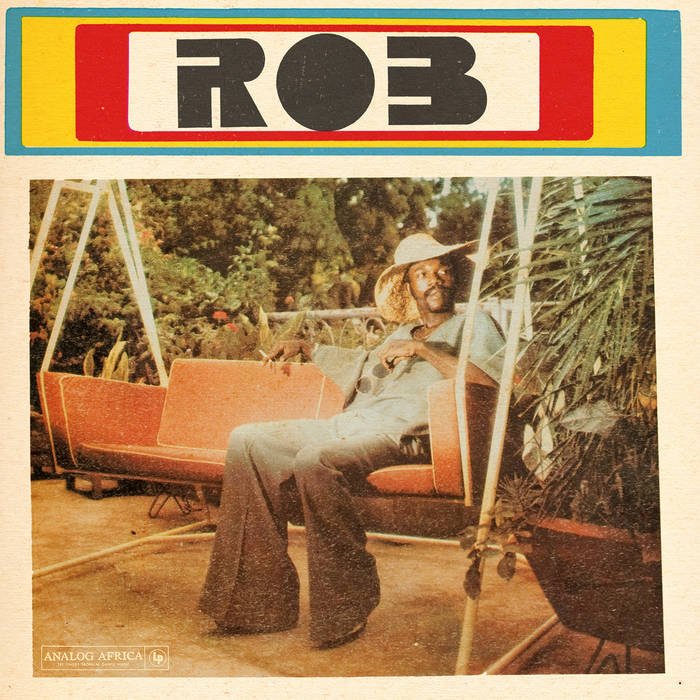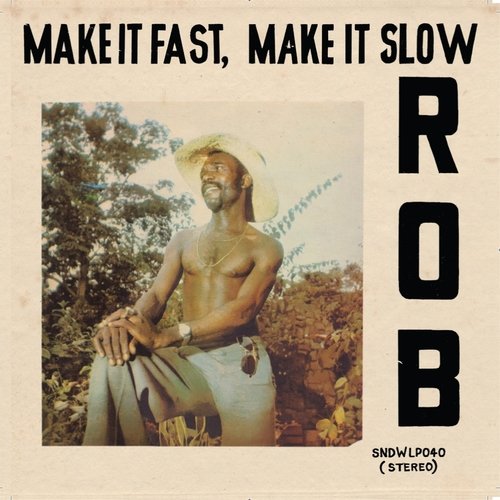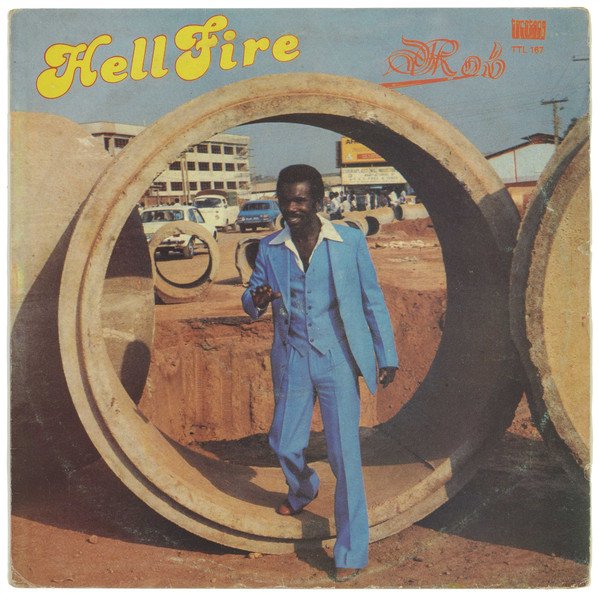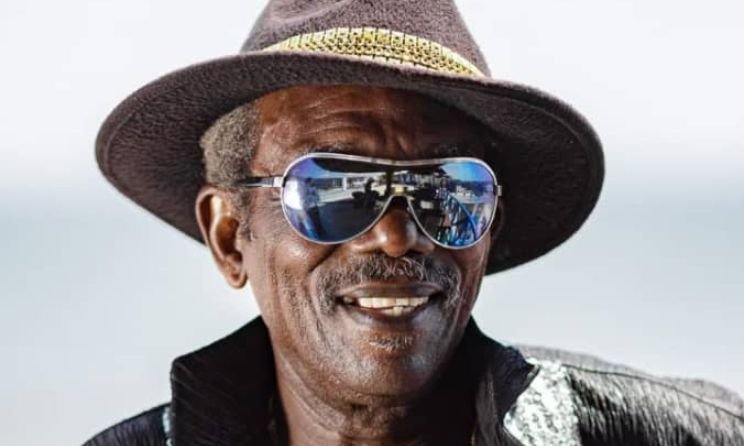Rob ‘Roy’ Raindorf, born on May 13, 1949, in Accra, Ghana, emerged as one of West Africa’s most enigmatic musical figures during the 1970s. His formative years were marked by a deep admiration for American soul and funk legends such as Otis Redding, James Brown, Wilson Pickett, and Ray Charles.

This passion led him to Cotonou, Benin, where he studied piano and immersed himself in the local music scene, performing with renowned groups like Orchestre Poly-Rythmo and Black Santiago. These experiences enriched his musical understanding, blending traditional African rhythms with the soulful expressions of American funk and soul. Upon returning to Ghana, Rob sought to create a unique sound that encapsulated this fusion, setting the stage for his distinctive contributions to the Afro-funk genre.
Rob’s compositions featured cosmic Afro-funk elements, characterized by slinky grooves, sultry wah-wah guitar, catchy horn hooks, and intricate percussion. In 1977, Rob collaborated with the Ghanaian army band Mag-2, known for their sophisticated equipment and talented horn section. Under the direction of lead guitarist Amponsah Rockson, Mag-2 provided the ideal backdrop for Rob’s innovative sound. Their partnership led to the recording of two albums at Essiebons studios in Accra, with Rockson handling much of the composition and arrangement, allowing Rob to focus on his charismatic vocal delivery.

In 1977, Rob released his debut album, “Funky Rob Way,” a groundbreaking work that showcased his unique blend of Afro-funk and soul. The album opens with the title track, “Funky Rob Way,” setting the tone with its infectious groove and Rob’s commanding vocals. Tracks like “Boogie On” and “Just One More Time” feature tight rhythms and dynamic horn sections, creating a danceable yet soulful experience. The synergy between Rob’s introspective lyrics and the vibrant instrumentation offers listeners a journey through themes of love, life, and self-reflection. This album solidified Rob’s place in the Ghanaian music scene, demonstrating his ability to merge traditional African sounds with contemporary funk influences.
Following the success of his debut, Rob released “Make It Fast, Make It Slow” in 1978. This album delves deeper into the sensual and hypnotic aspects of his music, with the title track exemplifying a slower, more deliberate groove that emphasizes the emotive power of his voice.

Songs like “Not the End” and “I’ve Got to See You Again, Lord” blend soulful melodies with reflective lyrics, exploring themes of longing and spiritual introspection. The interplay between the rhythm section and Rob’s vocal delivery creates a mesmerizing effect, drawing listeners into a contemplative musical space like in “loose up yourself”. This album further showcased Rob’s versatility and deepened his impact on the Afro-funk genre.
In 1981, Rob released “Hellfire,” an album that, despite its initial obscurity, has gained recognition over the years. This work continued to explore Rob’s signature fusion of funk and African rhythms, with tracks that delve into social and political themes. The album’s production features a raw, unfiltered sound, highlighting the synergy between Rob’s impassioned vocals and the band’s dynamic instrumentation. Although “Hellfire” did not achieve the commercial success of his earlier albums, it remains a testament to Rob’s commitment to pushing musical boundaries and addressing complex subjects through his art.

Rob ‘Roy’ Raindorf’s artistic journey is marked by his innovative fusion of American soul and funk with traditional African rhythms, creating a sound that is both unique and timeless. His collaborations with talented musicians, particularly the Mag-2 band, resulted in albums that continue to resonate with audiences today. Rob’s ability to convey deep emotion through his music, coupled with his charismatic stage presence, has cemented his legacy in the Afro-funk genre.

For those yet to experience Rob’s music, his discography offers a compelling journey through innovative fusion, timeless grooves, emotive storytelling, and historical significance. He masterfully blends African rhythms with American funk and soul, creating a sound that transcends cultural boundaries. His tracks feature infectious rhythms and melodies that remain danceable and relevant decades after their release.
Through his lyrics, he explores universal themes of love, life, and self-discovery, forging a deep connection with listeners. Beyond its musical brilliance, Rob’s work provides valuable insight into the evolution of Afro-funk and the rich musical heritage of Ghana, making his music essential for any serious music enthusiast.
Embarking on a journey through Rob ‘Roy’ Raindorf’s music not only provides an enriching auditory experience but also a deeper appreciation for the cultural tapestry from which his art emerge.

